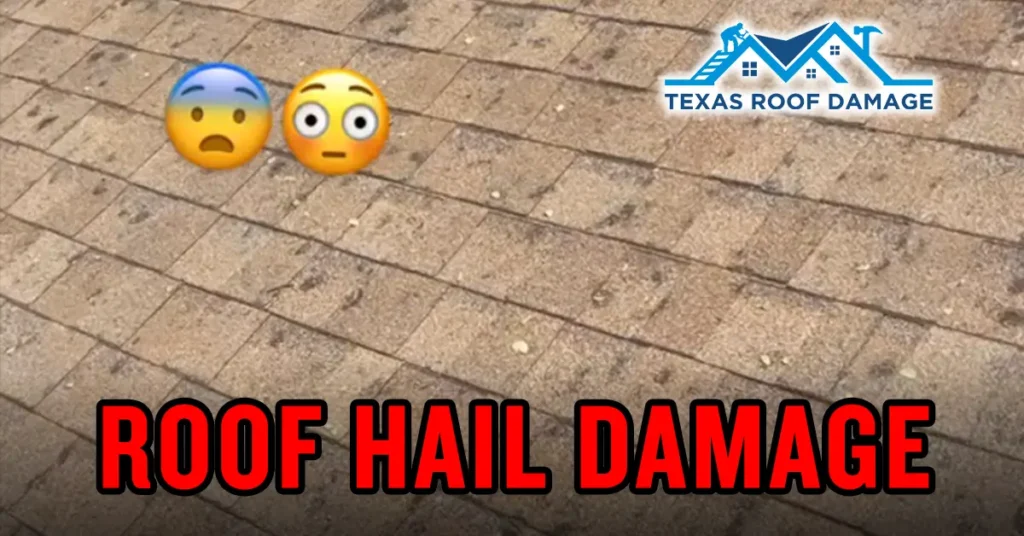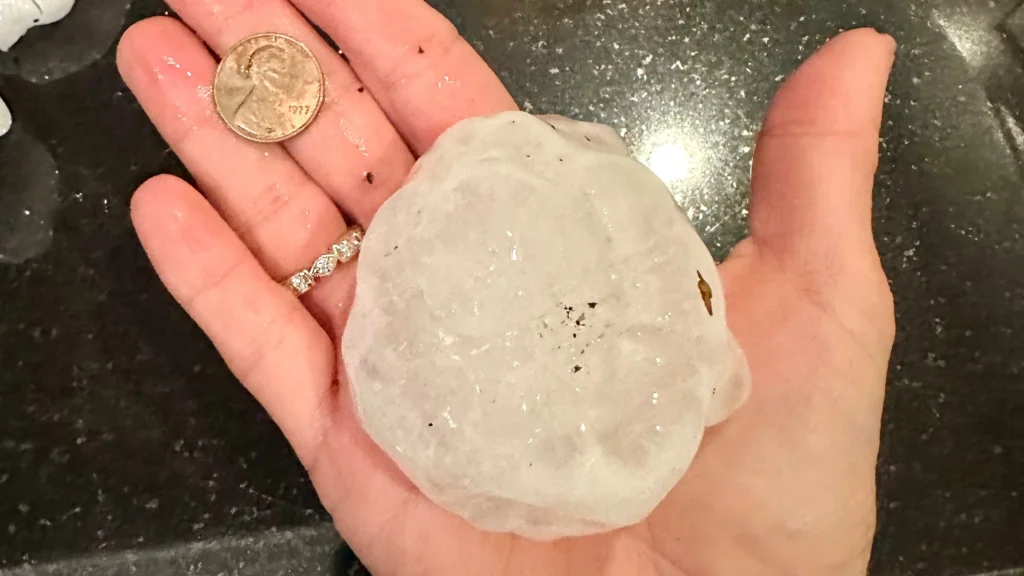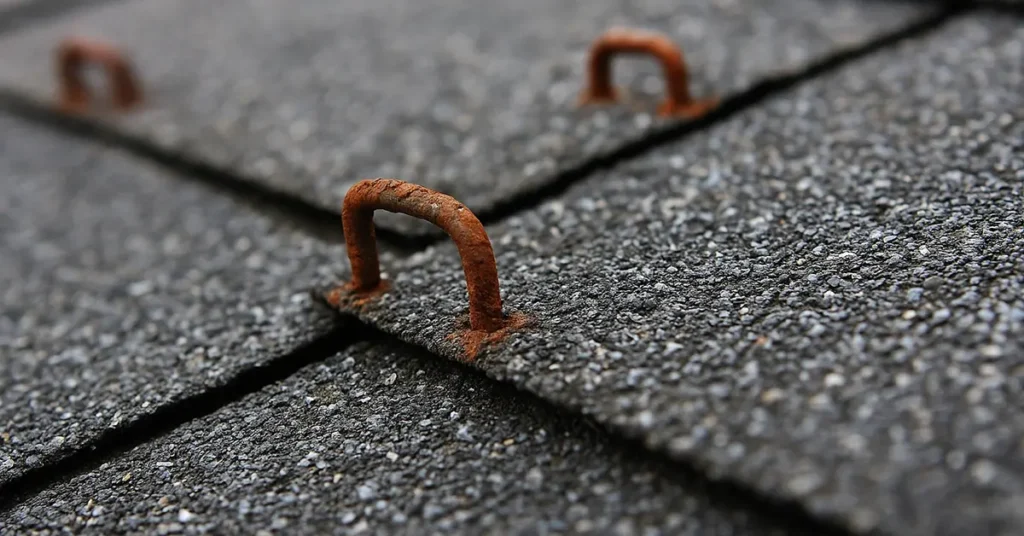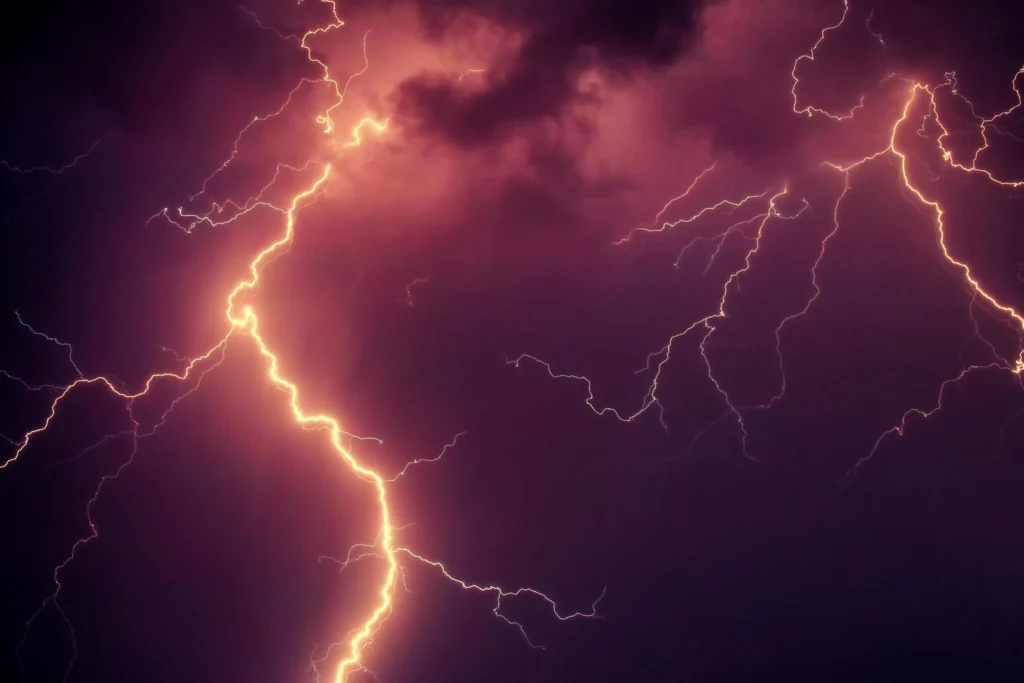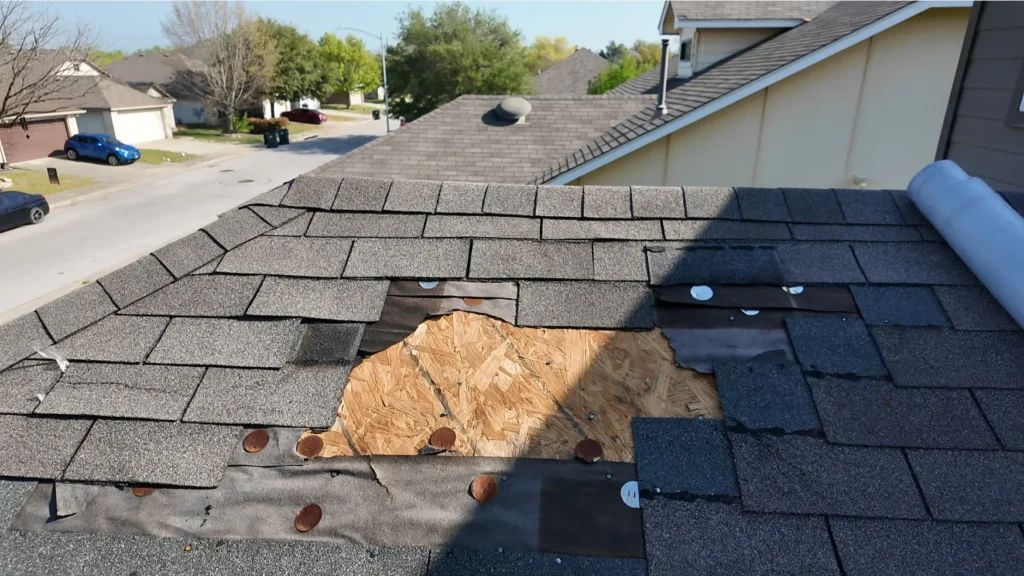Hailstorms can wreak havoc on your home, especially on your roof. Many Austin area homeowners aren’t sure what hail damage looks like or how to identify it. This guide will break down everything you need to know about what roof hail damage looks like, how to check for it, and what to do next.
How Does Hail Damage a Roof?
Hail damage occurs when chunks of ice, sometimes as large as baseballs, pummel your roof during a storm. The severity of the damage depends on:
- The size and density of the hailstones
- The wind speed and direction
- The age and condition of your roof
- The type of roofing material
Even small hailstones can cause significant damage over time, especially if they weaken the integrity of the shingles, leading to leaks and costly repairs.
What Does Roof Hail Damage Look Like?
1. Missing or Loose Shingles
One of the most obvious signs of hail damage is missing or loose shingles. If you notice shingles on the ground after a storm, there’s a good chance your roof has taken a hit.
2. Circular Dents on Shingles
Hail typically leaves behind circular impact marks on asphalt shingles. These dents may look small at first but can expose the underlying material, leading to leaks over time.
3. Loss of Granules on Shingles
If you check your gutters and notice a large number of granules, your shingles may have been damaged. Hail can strip away these protective granules, leaving your roof vulnerable to UV damage and premature aging.
4. Soft Spots or Bruising
Sometimes hail damage isn’t visible but can be felt. If you press on the shingle and it feels soft or spongy, this could indicate internal damage.
5. Cracked or Split Shingles
Larger hailstones can crack or split shingles, making your roof more susceptible to leaks. This type of damage often requires immediate attention.
6. Damaged Roof Flashing and Vents
Hail doesn’t just damage shingles—it can dent or crack metal flashing, vents, and even skylights. Be sure to inspect these areas after a storm.
7. Water Stains or Leaks Inside Your Home
If hail has punctured your roof, you might start seeing water stains on your ceiling or walls. This is a serious issue that needs immediate professional attention.
How to Check for Hail Damage on Your Roof
1. Inspect Your Gutters and Downspouts
After a hailstorm, check your gutters for excessive granules. If you see a large buildup, your shingles are likely compromised.
2. Look at Your Siding and Windows
Hail often damages more than just your roof. Check your home’s siding, windows, and doors for dents or cracks.
3. Check Your Attic for Leaks
If you suspect hail damage, head to your attic and look for any signs of water penetration.
4. Examine Your Outdoor AC Unit
Hail can dent or damage outdoor HVAC units, reducing efficiency. If you notice dents, you may need repairs.
5. Hire a Professional Roofing Contractor
If you’re unsure about roof damage, it’s best to call a professional roofer for a thorough inspection.
What to Do If You Find Hail Damage
1. Document the Damage
Take clear photos of any damage you find. This will be helpful when filing an insurance claim.
2. Contact Your Home Insurance Provider
Most homeowners’ insurance policies cover hail damage. Contact your provider and start the claims process. Learn more about hail damage and insurance coverage from Progressive.
3. Schedule a Professional Inspection
A professional roofing contractor can assess the damage and provide an estimate for repairs or a full replacement.
4. Understand When Insurance Will Pay for a New Roof
In Texas, insurance companies often require specific damage criteria before approving a full roof replacement. Learn more about insurance coverage for roof replacements from MD Law Texas.
5. How Much Does Insurance Pay for Hail Damage?
The payout for hail damage varies depending on your insurance policy and deductible. Some policies cover full replacement costs, while others only cover repairs. Check out this guide on hail damage insurance payouts from Econosurance.
6. Follow Texas Guidelines for Roof Replacement
If you need to replace your roof, make sure to follow Texas regulations. Read more about Texas roof replacement guidelines from the Texas Department of Insurance.
Preventing Roof Damage from Future Hailstorms
1. Install Impact-Resistant Shingles
Upgrading to Class 4 impact-resistant shingles can help minimize hail damage.
2. Maintain Your Roof Regularly
Routine inspections and maintenance can help identify weak spots before hailstorms strike.
3. Trim Overhanging Branches
Falling branches can cause additional roof damage during storms. Keep trees near your home well-trimmed.
4. Consider Roof Coatings
Some protective coatings can help shield your roof from minor hail damage.
FAQ: Roof Hail Damage
Q1: How soon should I inspect my roof after a hailstorm?
A: As soon as it’s safe! Hail damage can worsen over time, so early detection is key to preventing leaks.
Q2: Can I spot hail damage from the ground?
A: Some signs, like missing shingles or dented gutters, can be seen from the ground. However, a full roof inspection is best done by a professional.
Q3: Will my insurance cover roof hail damage?
A: Most homeowner’s insurance policies cover hail damage, but coverage depends on your specific policy and deductible.
Q4: How long do I have to file a claim for hail damage?
A: This varies by insurance provider, but most companies allow claims within 6 months to 1 year after the storm.
Q5: What happens if I ignore hail damage?
A: Ignoring hail damage can lead to leaks, mold growth, and expensive repairs. It’s best to address the issue as soon as possible.
Final Thoughts
Understanding what roof hail damage looks like is crucial for protecting your home. If you suspect your roof has been hit by hail, don’t wait—schedule an inspection and take action before minor damage turns into a costly problem.
Need a professional roof inspection? Contact us today for a free consultation!

